
The Darrell McClain show
Independent media that won't reinforce tribalism. We have one Planet; nobody's leaving, so let’s reason together!! Darrell McClain is a Military veteran with an abnormal interest in politics, economics, religion, philosophy, science, and literature. He's the author of Faith and the Ballot: A Christian's Guide to Voting, Unity, and Witness in Divided Times. Darrell is a certified Counselor. He focuses primarily on relationships, grief, addiction, and PTSD. He was born and raised in Jacksonville, FL, and went to Edward H white High School, where he wrestled under Coach Jermy Smith and The Late Brian Gilbert. He was a team wrestling captain, District champion, and an NHSCA All-American in freestyle Wrestling. He received a wrestling scholarship from Waldorf University in Forest City, Iowa. After a short period, he decided he no longer wanted to cut weight, effectively ending his college wrestling journey. Darrell McClain is an Ordained Pastor under the Universal Life Church and remains in good standing, as well as a Minister with American Marriage Ministries. He's a Believer in The Doctrines of Grace, Also Known as Calvinism. He joined the United States Navy in 2008 and was A Master at Arms (military police officer). He was awarded several medals while on active duty, including an Expeditionary Combat Medal, a Global War on Terror Medal, a National Defense Medal, a Korean Defense Medal, and multiple Navy Achievement Medals. While in the Navy, he also served as the assistant wrestling coach at Robert E. Lee High School. He's a Black Belt in Brazilian Jiu-Jitsu under 6th-degree black belt Gustavo Machado. Darrell Trains At Gustavo Machado Norfolk under the 4th-degree black belt and Former Marine Professor Mark Sausser. He studied psychology at American Military University and criminal justice at ECPI University.
The Darrell McClain show
Night Fight For New York
A mayoral debate that felt like a prize fight. A White House wing torn down for a 9,000-square-foot ballroom. Sanctions that squeeze Russia’s oil lifeline while summits dissolve overnight. And a healthcare shock that sends families scrambling to schedule surgery before premiums explode. We pull these threads together to show how spectacle keeps crowding out strategy—and how that choice lands on everyday people.
First, we take you ringside at New York City’s final debate: Cuomo swinging for the knockout, Mamdani refusing to fold, and Curtis Sliwa playing the comic heel with punchlines that stick. The crowd roars, the polls barely move, and a bigger story emerges about outsiders consolidating power in America’s cultural capital. Trump’s name hovers over the stage—weaponized by rivals, leveraged by critics—because branding beats policy when the lights burn this bright.
Then we zoom out. Sanctions hit Rosneft and Lukoil, but the messaging leaves room for quick reversal. Tomahawk missiles are denied to Ukraine under the banner of training timelines, a fig leaf for escalation fears. The war-on-drugs pivots to the Caribbean with boat strikes and covert authorities targeting Venezuela, while allies and critics wonder whether there’s any doctrine beyond momentum and mood. Meanwhile, China policy swings a heavy tariff hammer at a tech-driven contest that can’t be bludgeoned into submission. It’s improvisation at scale—sometimes effective, often disorienting.
Back home, the bulldozers arrive at the East Wing. The argument isn’t about taste; it’s about the meaning of the people’s house. Past presidents expanded for function and safety; this remake prioritizes spectacle, privately funded and publicly symbolic. At the same time, a surprising student debt relief deal offers real wins for long-suffering borrowers—PSLF buybacks, long-overdue discharges—yet the horizon darkens as 2028 threatens core income-driven plans. And then there’s the gut punch: marketplace premiums jumping an average of 18 percent as enhanced subsidies lapse, with Georgia as a hard-hit case study. Families face impossible choices, insurers warn of a spiral, and leaders rehearse the same talking points while costs outpace paychecks.
If you want a clear map through the noise—how local theater reflects national power, how foreign policy whiplash hits your wallet, how symbols rewrite norms and subsidies prop up shaky systems—this is your guide. Listen, share with a friend who’s doomscrolling, and leave a review to tell us where you’re feeling the squeeze most. Your stories shape what we unpack next.
Welcome back folks. Tonight, I want to take you straight into the electric chaos that was the final New York City Myoral debate. Three men, one stage. Ziran Mamdani, the progressive firebrand, assembleman Andrew Cuomo, the comeback kid who refuses to quit, and Curtis Sleewa, the beret wearing Republican street fighter who refuses to be ignored. Let's be clear, this wasn't your sleepy local debate about potholes and zoning ordinances. No, this was a night fight in the nation's most watched city. It felt like a Shakespearean drama staged at Madison Square Garden. Cuomo versus Mamdani. A brawl for the ages from the very start, Cuomo zeroed in on Mamdani. He wanted to draw blood. You could see it in his eyes, hear it in his voice. He painted Mamdani as an experienced, unserious, a man unworthy of shepherding eight and a half million souls. Cuomo said, I did things. You've never had a job. You've never accomplished anything. You missed 80% of your votes. Now I've seen Andrew Cuomo on a debate stage before. This is a man who relishes the kill shot. But Mamdani didn't fold. He came with his own arsenal, calling Cuomo a desperate man, Donald Trump's puppet. And then the dagger, Trump wants Andrew Cuomo to be mayor, not because it'll be good for New Yorkers, but because it'll be good for him. That's the kind of line that sticks. Because it's not just Cuomo versus Shea, Mam Dani, it's the ghost of Trump hovering over the stage. The Trump factor, used like a boogeyman in a children's tale, here's the thing Trump has become the gravitational force of this race, even though he isn't running. Mamdani uses Trump as a cudgel, Cuomo is his boy. Cuomo flips it and warns if Mamdani wins, Trump will treat New York like his personal punching bag. But listen closely. Trump himself has said Mamdani is basically unbeatable. He's even called Mamdani's rise a gift for Republicans, the idea being, fine, let progressives own New York City, see how it burns. So the city is caught in a hall of mirrors. One candidate calls another Trump's puppet. That candidate warns the other would be Trump's chew toy. And the real Trump is watching from the sidelines, smirking, knowing that either way his name is stamped on the marquee. Enter Curtis Slewa, the Street Fighter with the One-Liners now, let's talk about Curtis Sleewa. A Republican in New York City is like a cat trying to swim upstream possible, but not pretty. But you have to hand it to him. Slewa had some punchy moments. He roasted Cuomo for fleeing his governorship. You didn't leave, you fled. That's not just an attack, that's a meme. And then over and over he referred to Cuomo and Mamdani as two school kids. He knows his role here, not the policy wonk, not the visionary, but the guy throwing tomatoes at the main act, and the crowd ate it up. A rowdy audience changes the game, speaking of the crowd, this wasn't a silent debate hall. No, this was an arena. Cheers, booze, applause like a prize fight. And Mamdani had the moment of the night when he brought Charlotte Bennett, one of Cuomo's accusers, as his guest. He looked Cuomo in the face and said, What do you say to the 13 women you harass? That's not a debate tactic. That's courtroom drama. Cuomo, of course, defaulted to his legal shield. The cases were dropped, but in the theater of politics, that moment hung heavy. No knockout, no game changer, so did the debate matter. Honestly. Probably not. 90 minutes of fireworks, sure. A few viral clips, sure. But the polls are clear. Mamdani is cruising with a double-digit lead. Cuomo looked sharp but not transformative. Sliwa was entertaining but not ascendant. The takeaway is simple. Mamdani has become a phenomenon. Against the establishment, against Cuomo's heavyweight legacy, against Trump's sneers, he's still standing. Not just standing rising. The historical lens, outsiders become in the center now. Let's step back. American politics has a long tradition of outsiders who weren't supposed to whine until they did. Think uh Varella LaGuardia, Flower, who oh shocked New York in the 1930s, cutting 30s by cutting through corruption. Think Harold Washington in Chicago, who broke through as the city's first black mayor. Think even Bernie Sanders, the man Mamdani often echoes who went from being written off as a fringe socialist to reshaping the Democratic Party's vocabulary. Mamdani, like those figures, represents more than just himself. He's the symbol of a rising leftist generation that refuses to apologize for being unapologetically progressive in the biggest city in America. And that, my friends, is why Cuomo fights so bitterly against him. Cuomo doesn't just want to win. He wants to stop history from moving past him. The cultural stakes, New York is symbol, not just city, and here's the bigger thing: this isn't just about trash pickup and subway delays. New York City is a cultural beacon. What happens here reverberates across the country. If Mamdani wins, it will be read as a victory for the left at a time when the National Democratic Party is tacking center to survive Trump. If Cuomo wins, it's a story of establishment redemption, the old guard reclaiming the driver's seat. If, by some miracle, Sleeva wins, it's a populist revolt in America's bluest bastion. This race is a parable about the future of urban politics, the power of progressive ideas, and the lingering shadow of Trumpism. Closing reflection, the glide path and the trap of power, so where are we? Mom Dani's on a glide path to Gracy Mansion. But let's not romanticize it. Glide paths can turn into traps. Because once you win, once you inherit the throne, the hard questions begin. How do you govern a city that's broke, broken, and bristling with crime, housing crises, and inequality? How do you turn slogans into scaffolding? Andrew Cuomo can sneer, Curtis Sleewa can jeer, Trump can leer for Mar-a Lago butt at the end of the day. New Yorkers will soon place the keys of their city into new hands. And the real question isn't who won a debate, but whether the man who wins the mayoralty can turn firebrand passion into durable leadership. That's the debate we should all be watching, not on a stage, but in the months and years ahead. On Wednesday, he sat down with NATO Secretary General Mark Rutt, and between the warm handshakes and the photo ops, his administration dropped the most serious economic hammer yet on Russia. Sanctions against Rosneft and Luke Oil, the two crown jewels of Moscow's oil empire. Now let's not sugarcoat this when you sanction a country's oil. You're not nibbling around the edges. You're striking at the jugular. Oil is the bloodstream of the Russian state. Putin funds his war machine through it. He keeps the lights on and his kleptocratic system with it. He props up his oligarch cronies with it. So Trump finally pulled the trigger and said, It was time. But you'll notice something about Trump, he always leaves himself wiggle room. These sanctions, he said, won't be on for long because he hopes the war will be settled. That's not exactly Roosevelt in 1941 promising unconditional surrender. That's Trump in 2025 signaling, I'll put pressure on you, but if you play ball, I'll lift the wheat. It's transactional diplomacy, the art of the deal, applied to the art of war. The summit that vanished and right alongside the sanctions, the much-hyped Budapest Peace Summit with Putin evaporated. Trump said it just didn't feel right. Think about the TUS foreign policy being driven not by grand strategy, not by exhaustive briefing books, but by whether the president's gut feels right on a given Wednesday. The Bible says, let your yes be yes and your no be no. Trump's foreign policy has often been yes, no, maybe we'll see. And that ambiguity makes allies nervous. Hungary's foreign minister is already tweeting, the meeting will happen, it's just timing. So which is it? The theater of diplomacy is being written like improv comedy actors, waiting for the star to decide whether he'll show up for rehearsal. The Tomahawk question, complex then there's the Tomahawk missile debate. Ukraine wanted them. Zelensky pressed for them. Trump said no. His reasoning? These weapons take six months to a year to learn, so only American hands can really pull the trigger. Now, let's pause. That explanation, technical as it sounds, also masks the deeper truth. Giving Ukraine tomahawks would escalate the war dramatically. Those missiles could hit deep into Russia, striking fuel depots, command centers, even Moscow suburbs if launched far enough. Once you hand those over, you're no longer just arming a friend, you're inviting a new phase of conflict. So Trump dresses it up as a learning curve problem, but the real concern is escalation. He wants leverage over Putin, not a NATO-Russia direct clash. Zelensky, of course, says that refusal weakens Kyiv's bargaining power, and he's right. But this is where U.S. presidents always stand balancing solidarity with Ukraine against fear of a broader war. The war on cartels, foreign policy meets domestic fear from Eastern Europe, Trump pivoted to the Southern Hemisphere promising new strikes on South American drug cartels, and not just at sea on land. That's a remarkable escalation. The US military has already sunk drug boats in the Caribbean, killing dozens. Now Trump is talking about bootsword drones crossing borders to strike cartels on the ground. Here's where the Constitution collides with the commander-in-chief. The founders gave Congress the power to declare war for a reason. And you've got senators like Rand Paul already warning these strikes are flat out illegal. Trump's answer? We have legal authority. It's a national security problem. This is classic American overreach. We declare war on drugs in the 70s. It morphs into mass incarceration at home, secret wars abroad. We militarize everything, from traffic stops in Baltimore to the Caribbean Sea. And now the president is openly musing about launching land strikes against cartels in sovereign countries. History tells us these moves often expand faster than the American people anticipate. China looms, soybeans, tariffs, and nukes, and then there's China. Trump is preparing to head to Asia and he predicts a meeting with Xi Jinping where they'll make a deal on everything. Soybeans, tariffs, even nuclear weapons. I want you to stop and consider the absurd breadth of that statement. Agriculture, trade, arms control all in one big deal. It's pure Trumpian theater inflate expectations so high that any agreement, however modest, feels monumental. Meanwhile, the real fight with China isn't soybeans, it's tech. Rare earth minerals, software-driven exports. Who controls the guts of the 21st century economy? That's the contest. And Trump's answer once again is tariffs. He hits China with 100% duties starting November 1st. He sees tariffs as a hammer that fixes everything. But tariffs are a blunt instrument in a world of precision warfare. They hit farmers, they raise prices, they roil markets, yet Trump frames them as more powerful than rare earths, more powerful than diplomacy. Historical parallels. Sanctions, summits, and strongmen if this all feels chaotic sanctions one day, cancelled summits the next, tariffs thrown in like confetti well. History is full of this kind of improvisational diplomacy. Think Richard Nixon opening China in 72 with almost no preparation. Think Reagan and Gorbachev at Regajavich walking away from a deal at the last second but resetting the global chessboard anyway. The question is, will Trump's maneuvers produce peace or paralysis? Sanctions can force movements out Africa's apartheid regime bent under them in the ADZ, but they could also entrench dictators think Castro in Cuba. Cancel summits can look strong, or they can look flaky. Refusing weapons can keep America out of war or leave allies twisting in the wind. Trump is playing with high stakes, but his moves are reactive, not strategic. He responds to the move, to the optics, to the moment, and the world watches, adjusting accordingly. The fragile weight of leadership at the end of the day, the thread running through all this is Trump's instinctive style. He doesn't trust the technocrats, the institutions, the planners. He trusts his gut. Sometimes that gut instinct lands on the right side of history. Sometimes it puts the world in deeper peril. What we saw this week was a presidency operating on improvisation. Punish Russia but hint at relief. Cancel Putin but keep the door open. Deny tomahawks but promise other things, threaten cartels on land, then pivot to soybeans and nukes with Z. It's whiplash diplomacy. And yet it's the reality of our times. America is still the indispensable power. Every word, every cancellation, every tariff sends ripples across oceans. So as Trump jets off to Asia, sanctions in place, summits on ice, cartels in his crosshairs, and tariffs looming, the world is left asking, is there a method to the madness or just madness with occasional method? That's not just about Trump. That's about us as citizens who live with the consequences of presidential instinct. And history will judge not the gut feelings, but the outcomes. So the wrecking ball has swung at 1600 Pennsylvania Avenue, the east wing of the White House home to the First Lady's Office, the Visitor Center, the Social Secretary, the whole machinery that manages the ceremonial life of the presidency is being torn down. And why? Because Donald J. Trump wants a ballroom, not just any ballroom, a 9000 square foot,$300 million million monument, to grandeur that he says will be one of the great ballrooms anywhere in the world. Let that sink in. The White House, built in 1800, burned by the British in 1814, rebuilt and expanded across generations, reshaped by Roosevelt, Truman Kennedy, Reagan has just had one of its key wings ripped off because Trump wants a gilded ballroom. The White House has symbol, not just structure, the East Wing isn't just a small building, as Trump dismissively called it. It was built during Franklin Roosevelt's presidency in 1942, meant to house the growing administrative staff during World War II. It became the anchor for the First Lady's office and the ceremonial face of American soft power. It's where dignitaries arrive. It's where the small details of history, who greets, who hosts, who writes the calligraphy for invitations get carried out. Tear that down, and you're not just shifting offices to the Eisenhower building across the street. You're bulldozing a piece of the American story. The White House isn't just brick and limestone. It's a symbol of continuity. Every generation that's lived there, every president, every first lady has left a mark, but they've done it with respect for what came before. Even Truman, who gutted the place structurally, rebuilt it to look the same. Trump? He's doing something no president has ever done, demolishing an entire wing for personal spectacle. The King's Ballroom, Trump framed it this way. It'll be used to host world leaders. Sure. But Hakeem Jeffries, the House Minority Leader, cut to the chase. This isn't about diplomacides about Donald Trump wanting to be celebrated like a king. A 90-0-0 square foot ballroom. That's for Siles, not Washington. That's the hermitage in St. Petersburg, not the White House. And let's remember, Trump already has a taste for gaudy ballrooms. Mar-a-Lago has one. His New Jersey Golf Club has one. This is a man who sees chandeliers and gold leaf as markers of power. And now he's carving it into the heart of American democracy. The cost is ballooning to originally$200 million million, now$300 million million. He says it's funded by him and private donors. Think about the donors part. Private billionaires bankrolling, a ballroom in the White House. Monarchy dressed up as Republican government. Democrats cry foul, Republicans stay quiet predictably, Democrats are furious. Richard Blumenthal calls it a gigantic boondoggle. Jeffries calls a coronation architecture. But notice the silence or even quiet approval from many Republicans. They're not rushing to defend the East Wing's historical integrity because Trump's base doesn't care about preservation. They care about spectacle. And this is spectacle incarnate. It's also another example of Trump redefining the presidency in his own image. The people's house is being reshaped into Trump Tower South. The symbolism is not accidental. History of White House alterations, let's remember the history here. Presidents have made changes. Jefferson expanded it with terraces. Teddy Roosevelt built the West Wing to house his staff. Truman had to rebuild it completely after structural collapse. Jackie Kennedy famously restored and curated it to embody American history, but each of those changes was rooted in necessity, safety, functionality, or preservation. Trump's change is rooted in desire, in ego, in the need for grandeur. That makes it different. That makes it dangerous. Because once you treat the White House like a personal palace, you've abandoned its role as a national symbol. Theology of palaces versus houses now, let's go a little deeper. The Bible has plenty to say about kings and palaces. Solomon built a temple of the Lord, but he also built his own palace, twice as large, covered in cedar and gold, and the prophets criticize rulers who adorned their houses while neglecting justice for the people. Amos said, You lie on beds inlaid with ivory and lounge on your couches, but you do not grieve over the ruin of Joseph. That tension is alive here. Do we need a White House ballroom or do we need a government that functions? Do we need chandeliers or do we need affordable housing in Washington, D.C.? When rulers choose spectacle over service, scripture tells us it's a warning sign. A leader who builds ballrooms while neglecting the common good is a leader with priorities upside down. Preservation versus to Gress, the White House Historical Association tried to soften the blow. They scanned the East Wing digitally preserved it, saved artifacts. But think about that digitally preserved. We're living in a world where the tangible is sacrificed for the virtual. You can tour the East Wing in a VR headset, but you can't walk through its halls anymore. That's progress, yes, but also loss. And maybe that's the perfect metaphor for Trump's presidency. The replacement of substance with spectacle, history with holograms, stewardship with self-aggrandizement, the ballroom really means. So what does this all mean? On paper, it's just construction. A new space for dinners and receptions? But symbolically, it's seismic. The East Wing built in the time of war to expand the capacity of the presidency is gone. In its place, a palace ballroom funded by private donors designed for opulence, meant to glorify the man in office. When future generations look back, they may not remember the arguments about tariffs or tomahawk missiles. But they will see the photographs, Trump's ballroom rising where the East Wing once stood. They will ask, was this a house of the people or the palace of a king? And maybe, just maybe, they'll see it for what it really is, a monument not to American democracy, but to one man's hunger for grandeur. Now here's something I never thought I'd say. Student loan borrowers got a win out of the Trump White House. Let me repeat that. In the middle of a government shutdown, with education department employees furloughed in courtrooms gummed up, a deal was cut that actually means millions of Americans will see long-awaited debt relief. And the architects. The American Federation of Teachers, who dragged the administration into court and refused to let go until the government honored its obligations. This agreement is narrow, it's technical, but for people who've been paying on their loans for 20 or 25 years, grinding it out faithfully, this is the light at the end of the tunnel. Debt relief is coming. And at least for those who qualify this year, it will be taxed as income. That alone is a small miracle. Debt forgiveness in America, a long torture history, let's put this in context. Debt forgiveness is not new to the American story. In fact, it's biblical. Every seven years in the Hebrew scriptures, debts were to be released. The Jubilee Early 50 was an economic reset, land returned, slaves freed, debts erased. It was God's way of preventing permanent cycles of poverty. Fast forward 2,000 years, and America has perfected the opposite, debt as an inheritance. Parents die and their children inherit not just heirlooms but bills. We tell 18-year-olds, go to college, chase your dreams, then saddle them with loans that last longer than marriages. Student loans, unlike credit cards or mortgages, can't be discharged in bankruptcy. You can fail at business, file bankruptcy, and get a clean slate, but fail at a degree in Sally May will stalk you to your grave. So when we hear that people who've been paying for 20, 25 years are finally eligible for cancellation, that's not a gift. That's just as delayed. Trump's big, beautiful bill in the politics of contradiction, but here's the irony, Trump himself has been no friend to student borrowers. His so-called big beautiful bill of 2028 eliminates income-driven repayment altogether. The very plans pay as you earn income contingent repayment that let people manage debt and eventually reach forgiveness. Gone. So what this deal really represents is a carve-out. A concession to lawsuits. Borrowers stuck in limbo, left without relief because of the administration's pause are being told, fine, you can get your discharge. But in three years, the entire structure of forgiveness vanishes. This is Trump politics in a nutshell one hand gives, the other hand takes away. He'll stand at a podium and boast I gave relief, tremendous relief, the best relief. And the fine prince says, but only until I rip the program out by the roots in 2028. The legal battle after the administration, the reason this deal happened at all was because the AFT sued. They took the administration to court after a froze processing of loan forgiveness. And the irony deepens. The Trump team blamed the Biden administration, saying Biden's illegal mass cancellation efforts broke the system and forced them to pause. Think about the gall here. Biden tried broad cancellation courts, blocked it. Trump pauses lawful cancellations then says, we had to fix Biden's mess. Borrowers caught in the middle. That's politics as usual. Two administrations, two parties, and the people paying interest the whole time. The win is significant though. Monthly status reports to the court mean advocates can keep the administration's feet to the fire. Transparency matters, because if there's one thing bureaucracies are good at, it's slow walking promises into oblivion. Public service loan forgiveness, a lifeline restored, there's another detail buried in the deal, PSLF buybacks. But public servants teachers, nurses, social workers, this is a lifeline. Months in forbearance can now count toward forgiveness. Anyone who's tried PSLF knows the horror stories. Payments don't count because of a paperwork error servicers miscalculate ten years of service vanish in a glitch. This at least reclaims lost ground. But again, only if you act. Only if you switch plans, if you call your servicer if you know the loopholes. Our system puts the burden on the borrower to navigate a labyrinth of acronyms IRICR pay, PSLF. Miss a turn in your trap for life. The human stakes. Families in limbo, let's step back. Behind the acronyms are families who have been paying since the 90s. Parents who took out loans before their kids were born now helping those sane kids with FASI forms. Teachers who enter classrooms on the promise of forgiveness, only to watch deadlines slip away. Nurses who work through a pandemic still chained to debts older than their students. The government shutdown delays all of this. 95% of education department staff are furloughed. So even with the deal, even with a court order, it could take weeks or months to process cancellations. For people who've already waited 25 years, that's insult on top of injury. Historical parallels, the politics of forgiveness throughout history, governments have wrestled with debt as both an economic and moral issue. In the ancient world, rulers declared debt jubilees to reset society. In medieval Europe, the Catholic Church condemned usury and tried to regulate lending. In post-war America, the GI Bill offered a path to free or nearly free education for veterans, creating the middle class. And here we are now, forgiveness only after lawsuits, forgiveness that expires in 2028, forgiveness taxes income after 2026. This isn't jubilee. It's begrudging, piecemeal mercy. The Jubilee we haven't had, so what should we make of it? On the one hand, this is real relief for real people. Borrowers who've given decades to repayment will finally see zero balances. That matters. It matters to their families, their futures, their dignity. On the other hand, this is a reminder of how broken the system is. We celebrate forgiveness not as a right, but as a courtroom settlement. We ration grace like it's a scarce resource. And we're still on track to eliminate the very programs that made forgiveness possible in the first place. The Book of Proverbs says, the borrower is servant to the lender. For too long, America has lived by that verse enshrining debt as a kind of servitude. What we need is a vision closer to Jubilee, where education doesn't mean bondage, where knowledge doesn't mean change, where the path to opportunity doesn't begin with 30 years of indenture payments. Until then, deals like this are band-aids. Important band-aids, yes. But the wound remains open.
SPEAKER_02:There's an election happening in New York City, and one candidate is making people see red.
SPEAKER_01:Self-proclaimed New York City communist is Zoran Mandami. Who is a socialist communist. Well, Mandami the communist.
SPEAKER_03:An avowed communist.
SPEAKER_04:I call him my little communist.
SPEAKER_03:Well, love him or hate him, everyone seems to agree. This guy's a communist.
SPEAKER_05:a communist?
SPEAKER_03:I'm not saying that.
SPEAKER_05:People are saying that. Really? That's what nobody told me. I'm a co-chair of the communist party. Co-chair. Co-chair.
SPEAKER_03:Wow, they really make you share everything, don't they? Well, it's better. Cooperation is the name of the game. According to Joe Simmons, co-chair of the Communist Party, we're using the C-word all wrong. You say he's not a communist. No, no, no, no, no. He's a Democratic socialist. Okay, so explain the difference to me between the Communist Party and the Democratic Socialist.
SPEAKER_05:Well, the Communist Party believes that capitalism needs to be implied fundamentally.
SPEAKER_03:No, what's so distasteful about capitalism anyway?
SPEAKER_05:But also taught us believe that they can function in the fine word of the Democratic Party.
SPEAKER_03:Oh, I agree with you there. Oh God, did that make me a communist? All my life, I thought communism was about military trades, dictatorships, and using the full apparatus of the state between one single box.
SPEAKER_05:Oh God. We've got a bad name over the years. Bad reputation, I should say. People believe that communism and socialism means government control. But that's not true. No? No, not at all. Socialism, communism, and democracy are not opposites. And one of the great things is that you should be able to choose what you do. Perhaps you'd like to run a food co-op. And if you don't want to run a food co-op, maybe you'd like to run a farm. And if you don't want to run a farm, maybe you'd like to run a theater company? Maybe you'd like to be a future person. How about a park ranger? Oh, no park ranger. How about an astronaut? Tell me what you'd like to do. Spend more time with your family.
SPEAKER_03:Oh, that's a bad thing. But why do people think that Mombani's supported? Momdani is a communist. What is it exactly that you think people see Monthani doing that would cause them to call him a communist?
SPEAKER_05:Affordability. Any effort to put forward an idea of a more equitable distribution of wealth is labeled socialist or communist in an effort to just dismiss it out of hand. It's called red baiting. Red baiting. Red baiting anti-communism goal is to justify people. That's what happened to us during the McCarthy period, you know.
SPEAKER_03:Okay, but McCarthyism was 70 years ago. Surely we've learned our lesson by now.
SPEAKER_04:Members of Congress and even former presidents have been openly embracing wild freedoms, socialism, Marxism, and straight up communism. Um Radical.
SPEAKER_03:Okay, that sounds a lot like my baby. But how do we know for sure that the Democratic Party isn't full of communists? Well, it's kind of new. I disagree with you. Even though people are divided, if we're gonna be divided, at least the right thing.
SPEAKER_01:By his own count, President Donald Trump has settled eight wars, from the Gaza Strip to Southeast Asia, during his nine months in office. But in a place much closer to home, he now seems determined to start one. With dozens of warships and planes and thousands of U.S. troops newly deployed to the Caribbean Sea, Trump has declared an armed conflict with drug trafficking groups he has designated international terrorists. U.S. air attacks have blown up at least seven boats that Trump has charged were carrying drugs to the United States in international waters from Venezuela, in the process killing dozens of alleged traffickers. He has also signed a finding or authorization document for CIA covert operations in Venezuela and charged its president, Nicolas Maduro, with being illegitimately elected and heading a narcotics cartel. I authorized it for two reasons, Trump said last week. Venezuela, he said, was the worst abuser of open border policies under the Biden administration, emptying its prisons, mental institutions, insane asylums of migrants to the United States. The other thing is drugs. We have a lot of drugs coming in from Venezuela. Asked if he had authorized the CIA to take out Maduro, Trump said it would be a ridiculous question for me to answer. But I think Venezuela is feeling the heat. White House spokeswoman Anna Kelly referred to Trump's public statements in response to a request for clarification of his policy in the region. She added in an email that, these decisive strikes have been against designated narco-terrorists bringing deadly poison to our shores, and the president will continue to use every element of American power to stop drugs from flooding into our country and to bring those responsible to justice. Trump has made clear his intentions to go beyond blowing up boats, saying, we're going to stop them by land in Venezuela. Several people familiar with internal administration deliberations said any initial land attack would probably be a targeted operation on alleged trafficker encampments or clandestine airstrips, rather than a direct attempt to unseat Maduro. Some said the U.S. deployments and boat strikes were psychological warfare to promote fractures in the Venezuelan armed forces or persuade Maduro to step down. But Trump has said nothing to dispel concerns that the United States could launch a full-scale military operation, having declared war against narco-terrorists and designated Maduro as the head of at least one of them. There really is no turning back unless Maduro is essentially not in power, said one person among those interviewed for this article, who, like others, spoke on the condition of anonymity about the sensitive issue. At the end of the day, if you have authority to take out cartel runners at sea, you can take out the cartel boss, the person said. The vast majority of illicit drugs entering the United States, and virtually all of the fentanyl, do not come from or through the Caribbean, but from along the Pacific coast, or by land from Mexico, according to U.S. government and UN experts. Venezuela is generally used as a conduit for cocaine produced and trafficked by Colombian guerrilla groups, primarily the National Liberation Army, or ELN, by its Spanish initials. The Cartel de los Souls, the terrorist-designated Venezuelan group that, according to the Trump administration, is headed by Maduro, is largely made up of senior Venezuelan military and regime officials who facilitate and take a cut of profits from drug trafficking and other criminal activity. I think we are ways off from having a military presence on the ground in Venezuela, said Juan Gonzalez, who served as National Security Council's senior director for Western Hemisphere Affairs during the Biden administration. It doesn't mean that they won't use U.S. assets to try to go inside of Venezuelan territory, but it's much easier to go after ELN's safe havens, that border Colombia, inside Venezuela, than to go inside Caracas. While Trump's precise instructions to the CIA are highly classified, two people familiar with the document he signed described it as authorizing aggressive agency action against the Venezuelan government and associated drug traffickers. The document does not explicitly order the CIA to overthrow Maduro, but it authorizes steps that could lead to that outcome, said the people familiar with it. The spy agency has moved to beef up its presence in the region, surging personnel to the Caribbean and surrounding area to collect human and electronic intelligence, the people familiar with the matter said. The Pentagon has already surged U.S. Special Operations Forces into the region, including an elite helicopter unit. The U.S. is at a turning point. Washington needs to decide what it wants, said Jeff Ramsey, a Venezuela expert at the Atlantic Council. The president came to office campaigning to end endless wars, but he's found himself now championing what may be America's longest war, which is the war on drugs, fear of mission creep. For many outside observers, including lawmakers and regional experts, it is still unclear whether Trump's actions thus far are part of a political or military strategy designed to curtail the flow of drugs, lead to Maduro's overthrow, or be part of a broader pivot toward Latin America. It would certainly ratchet things up if they began doing strikes on land inside Venezuelan territory, especially if those strikes had a political purpose, said Tom Shannon, who served in several senior State Department positions, including Assistant Secretary for Western Hemisphere Affairs and Under Secretary for Political Affairs during the Obama administration, and for the first five months of Trump's first term. This is where I think the administration is going to get itself in trouble. They're not being clear to the American people about what's going on here, Shannon said. If it's just drug trafficking, great, but they've got a way oversized force, and there's an intimidation message here that is only being articulated through acts and through the announcement of covert action inside Venezuela. Admiral Alvin Holsey resigned last week as head of the U.S. Southern Command, less than a year into a three-year appointment, something that Shannon and others attributed to his discomfort over the Caribbean operations. Critics have argued that the strikes are violations of U.S. and international law, and that the administration has not provided sufficient evidence or credible legal justification. Neither Holsey nor Defense Secretary Pete Heggsith gave a reason for the Admiral's departure, but you have to assume this is why he decided his career is over with, Shannon said. This is going to be my legacy? War crimes? More broadly, the administration has said it wants to refocus American foreign policy away from further flung parts of the world and toward the Western Hemisphere. The forthcoming national defense strategy, usually produced by the Pentagon every four years, is set to make defending the U.S. homeland and the near abroad top priorities, according to multiple people familiar with the document. Those priorities are also likely to be reflected in the administration's national security strategy, produced by the White House, and also nearing release. The choice has rankled many uniformed military leaders, most of whom still consider China's rapid military buildup the most pressing national security threat. Some lawmakers and regional experts doubt whether there is a strategy for the hemisphere at all, seeing instead a series of policies toward individual countries whose treatment by the administration has more to do with their fealty to MAGA policies and Trump's personal preferences. I think the policy in the Americas is really a mishmash right now, said Senator Tim Kane, Democrat Virginia, who has long focused on policy toward Latin America. We're engaging in military action in the Caribbean, and we're giving Argentina 20 billion bucks if their midterms turn out the right way, Cain told a gathering of reporters Friday. You tell me what the through line is. Close friends and foreign meddling. Argentina will hold legislative elections next Saturday, and the government of President Javier Mile, an avowed MAGA disciple, a narco-capitalist and Trump favorite, is predicted to lose seats in the midst of an economic downturn. If Miley prevails, Trump promised when the Argentine leader visited the White House last week, he'll get the$20 billion to prop up the Argentine peso, and maybe$20 billion more. If he loses, Trump said, hinting to Argentine voters that the economy's rescue hangs in the balance, we won't waste our time. The administration has praised the conservative president of Paraguay, whom Secretary of State Marco Rubio called an extraordinary partner last summer after that government agreed to take U.S. asylum seekers. Ecuador, which indicated a willingness to reopen a U.S. military base closed by a previous government, was promised. A possible free trade agreement during a Rubio visit last month. At the same time, Trump has threatened stiff tariffs on Chilean copper, that country's primary export to the U.S., despite an existing free trade agreement and Chile's trade deficit with the United States. Trump hit Brazil with a 50% tariff after the criminal conviction of former president and Trump ally Jair Bolsonaro for plotting a coup against the nation's current president, Luis Ignacio Lula da Silva. But after a brief handshake with Lula at the United Nations last month, Trump proclaimed they had excellent chemistry, and a future sit-down was in the works. Lula, Chilean President Gabriel Boris, and Colombian President Gustavo Petro are leftists nearing the end of their terms. Last weekend, Petro accused Trump of a military attack on a fishing boat in Colombian waters and killing a Colombian citizen. In response, Trump said he was cutting all USAID to Bogota, whose military and intelligence relationship with the United States has been the closest in Latin America, and would likely impose crippling tariffs. Calling Petro a lunatic and an illegal drug leader, Trump said on social media that if he didn't clean up Colombia's illicit cocaine production, the United States would do it for him, and it won't be done nicely. On Wednesday, the Pentagon said it struck another alleged drug boat, this time in the waters of the Eastern Pacific. Cuts in military assistance to Colombia risk a vital intelligence partnership, just as the U.S. ramps up military activity in the region, Gonzalez said. It's not going to punish Petro, he said, and may actually improve his weak domestic standing. Trump may have just given him a platform to be a popular former president who stood up to the United States, which is what Petro is looking for. In Venezuela, the government has continued to attack political opponents and protesters while mobilizing troops to coastal areas and, according to Maduro, enrolling 8 million people in civilian militias. The CIA had organized all the coup d'etat in Latin America, and presidents assassinated, Maduro said after learning of Trump's CIA authorization. Speaking on state television, Defense Minister Vladimir Padrino said he didn't want to alarm people. But I do want to warn the population that we have to prepare, because the irrationality with which U.S. imperialism acts is not normal. This is the first time we have indicators that they are taking this threat seriously, said Andre Serbanpont of the Latin American Research Group Cries. They understand that conventional capacities don't stand a chance against a possible U.S. intervention. Even with purchases and contributions from Russia, China, and Iran, Venezuela's military is outdated and unused to combat. The logic behind Venezuelan military purchases was to send ideological messages rather than accessing the best technology, said Jose Gustavo Arrocha, a retired Venezuelan Army lieutenant colonel now living in the United States. In the end, Arroca said, what is truly relevant and why the regime is a threat is its asymmetric capabilities in intelligence, infiltration, buying favors, and disinformation. Any Venezuelan response is unlikely to present a significant impediment to U.S. forces. Jeffrey Korn, a retired Army officer and director of Texas Tech University's Center for Military Law and Policy, wrote on the War on the Rocks website. But, what began as a limited action against a handful of alleged drug smugglers could quickly expand to an interstate war, regime change, and all the second and third order consequences the United States has experienced that are often harder to address than defeating the enemy in battle. For now, Trump seems unconcerned by Venezuela's defense preparations. Videos distributed by Maduro's government show civilians, many of them older, being trained to repel an invasion. He reposted one on his truth social media account, showing a woman running awkwardly with a long gun in her hands. Top secret, Trump wrote. Herrero reported from Caracas. Noah Robertson and Alex Horton contributed to this report.
SPEAKER_00:Folks, I want to talk about something that's not abstract, not theoretical, but painfully real. Right now, as we speak, millions of Americans are logging on to healthcare marketplaces and seeing numbers that make their jaws drop. Premiums are skyrocketing for 2026. We're talking about the steepest year-over-year price hike since the Affordable Care Act was born 12 years ago. 18% increases on average. Some people seeing their premiums double, even triple. A family of four in Georgia, making$1.82, 0-0 ready middle class, already feeling squeezed now staring at annual premiums, jumping from around$3,500 to nearly$7,000. And if they're just above the subsidy cutoff,$24,000 a year for insurance. That's a mortgage payment strapped onto your health care. The politics of deadlock, why is this happening? Because Congress is locked in a bitter standoff. Democrats say we won't fund the government unless the COVID era premium subsidies are extended. Republicans say reopen the government first, then we'll talk. And in the meantime, ordinary Americans become collateral damage. This is the story of Washington dysfunction. Subsidies expire, premiums spike, families panic, and lawmakers point fingers. Republicans call the subsidies a band-aid that hides the failure of Obamacare to control costs. Democrats argue those subsidies were the one thing keeping coverage affordable for millions. And as they fight, the government remains shut down 95% of the education department furloughed. Marketplaces publishing premiums without clarity on relief. Georgia has ground zero look at Georgia. Second highest enrollment of any Stitra in marketplace. 96% of enrollees there got subsidies this year. That means 1.4 million Georgians depended on that cushion. Now with subsidies gone, their premiums spike overnight. And here's the twist: even rep. Marjorie Taylor Greinhard ride bomb throwing anti-ACA to her bones, he's breaking with her party.
SPEAKER_05:Why?
SPEAKER_00:Because her own adult children's premiums are doubling. Suddenly the politics of ideology meet the politics of lived experience. Nothing like a family bill to make you rethink your talking points. Senator John Ossoff, the Democrat fighting for his political life in Georgia, sees opportunity here. He's making this the core of his re-election pitch, extend the subsidies or watch families suffer. The politics of healthcare never went away their back with a vengeance. The human cost behind these numbers are lives. Take Jody Fioletto, a 31-year-old in Atlanta, making about$40,000 a year. She's been paying$160 a month for coverage. Next year that nearly doubles. So what does she do? She schedules surgery this year while she knows she's covered because she doesn't know what 2026 will look like. That's what insecurity does. It forces people to make medical decisions based on fear of the calendar, not based on health. This is what we've normalized in America. A healthcare system where people say, I'd better get this procedure done before my insurance disappears. That's not health care. That's survival. Historical lens, the subsidy struggle, let's step back. The Affordable Care Act was supposed to fix this by creating marketplaces and subsidies, but it was also a political compromise. To get it passed, Democrats left private insurers in charge. That meant costs were always going to rise with hospital prices, with drug costs, with medical inflation. Subsidies were the duct tape holding it together. When COVID hit, Congress juiced those subsidies so more people could afford coverage. For the first time, families making above 400% of the poverty line qualified. That was transformative millions suddenly insured premiums at record lows. But those subsidies were temporary. Everyone knew it. And now the clock has run out. We've seen this before. In 2017, Republicans tried to repeal the ACA altogether. That failed. But they succeeded in undermining parts of it, removing the individual mandate penalty, cutting funding for outreach. Every time Washington deadlocks consumers pay the price. The cultural battle health as commodity or right, this is more than math. It's a cultural question, is health care a right or is it a commodity? Other developed nations decided decades ago that health is a right. Britain, France, Canada, Japan, they treat coverage as universal. In America, we still treat health insurance as a marketplace good, something you buy if you can afford it. That's why we talk about subsidies instead of guarantees about open enrollment instead of entitlement. And that's why every few years the fight over premiums becomes a political crisis, because the system itself is designed to wobble without constant infusions of cash. The political fallout, the political fallout is already visible. Vulnerable Republicans in Swing District 13 of them are begging House Speaker Mike Johnson to extend the subsidies. They know their constituents are logging on right now, seeing premiums spike, and blaming whoever's in power. Democrats like Patty Murray are hammering the message, Republicans are letting premiums double. Republicans counter, Democrats built a broken system and use COVID subsidies to paper over the cracks. Both parties are playing hot potato with healthcare while families watch their budgets implode. Insurers in the spiral, and then there are the insurers. They say the expiration of subsidies will drive healthy people off the rolls, leaving only the sick, which makes premiums rise further. It's the death spiral everyone warned about when the ACA launched. Add to that medical inflation,$1,000 want weight loss drugs, hospital consolidation and insurers argue their hands are tied. But let's be honest, insurance companies aren't charities. They're corporations protecting margins. And when premiums rise 18%, CEOs don't feel it. Jodi and Atlanta does. Closing reflection a nation of sticker shocks, so here's the truth, unless Congress acts millions will go into 2026 with premiums they simply can't afford. Some will forgo coverage. Some will gamble on staying healthy. Some will cut corner skip appointments, delay prescriptions, cancel procedures. And a country already fractured by inequality will fracture further between those who can pay$24,000 a year for coverage and those who simply drop out. Healthcare is not abstract. It's a monthly bill. It's a decision between premiums and mortgages. It's a surgery scheduled early out of fear. And until we stop treating it as a partisan football and start treating it as a human right, we'll keep reliving this cycle. Subsidy fights, premium hikes, government shutdowns, families left in the lurch. The prophets of old will call that injustice. The economists call it market failure, I just call it wrong. And as open enrollment looms in November, millions of Americans will be staring at their screens asking one simple question Can I afford to be healthy next year? And that, my friends, is the question Washington refuses to answer.
Podcasts we love
Check out these other fine podcasts recommended by us, not an algorithm.

The LUNSB Show with T-Bone and ChickBrew
Tony Knuckles
Over opinionated with Josh Scott
Josh scott
The Jamie Kilstein Podcast
Jamie Kilstein
The Back Row with Jamie Kilstein
Jamie Kilstein
Your Calvinist Podcast with Keith Foskey
Keith Foskey
BJJ Mental Models
Steve Kwan
Renewing Your Mind
Ligonier Ministries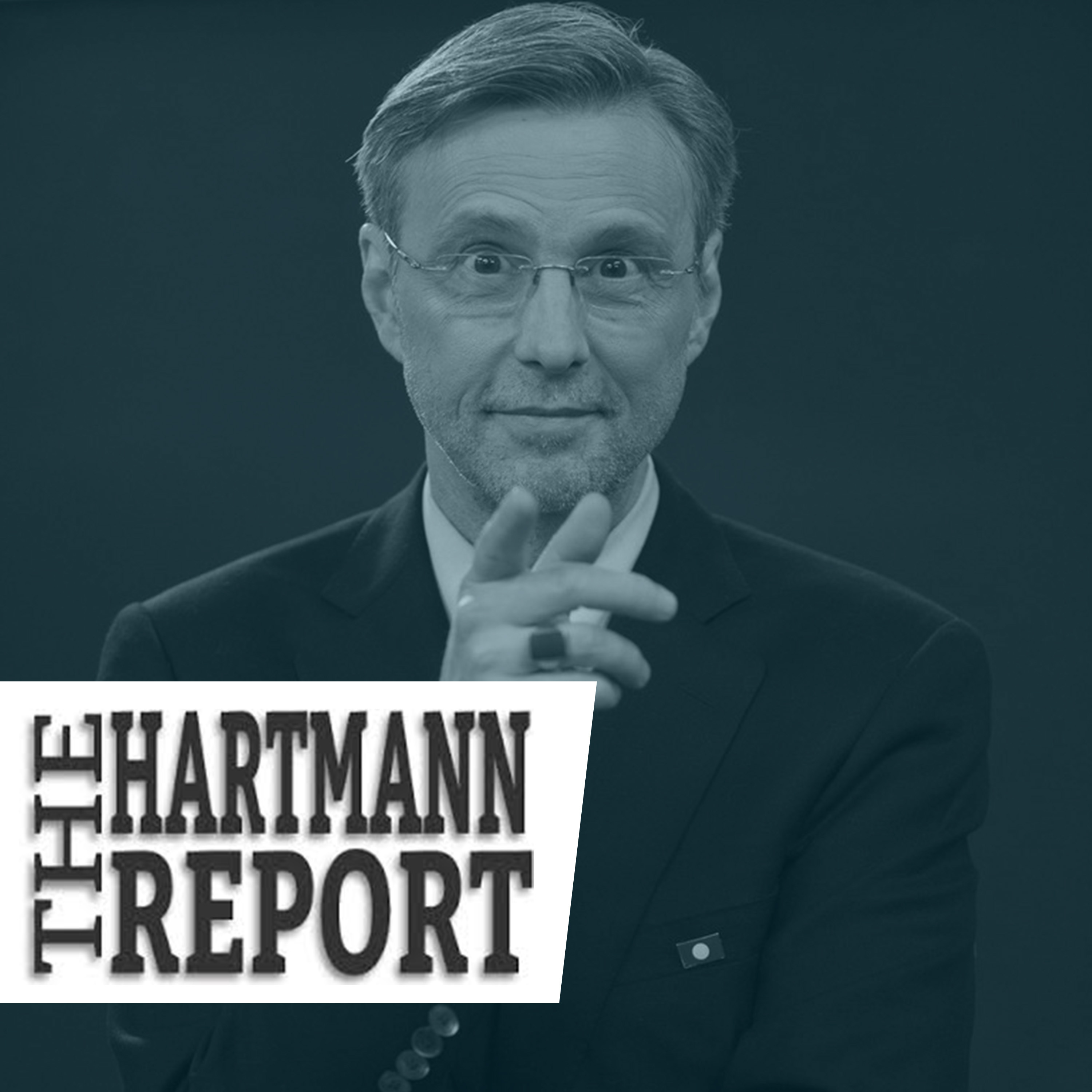
The Hartmann Report
Thom Hartmann
The Glenn Show
Glenn Loury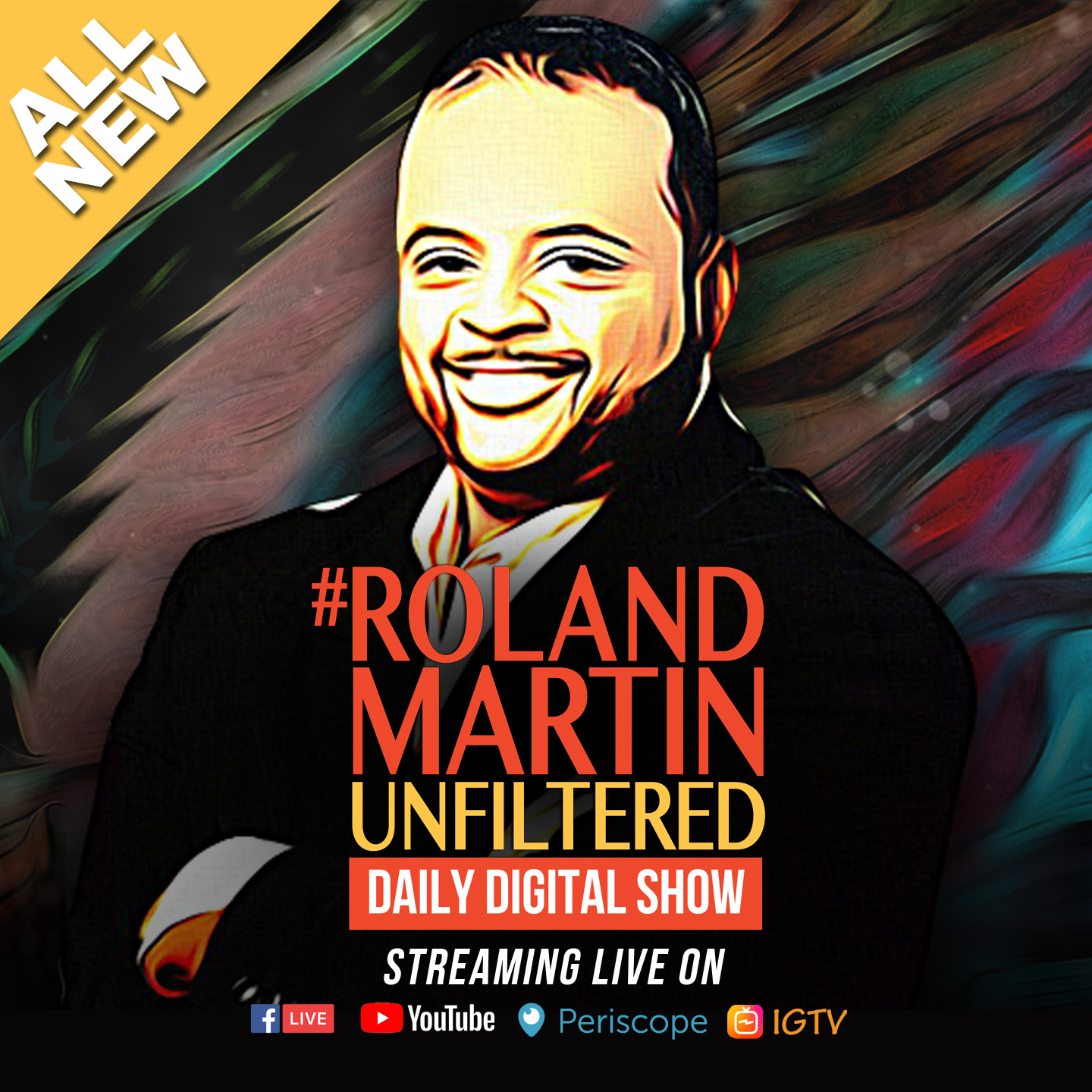
#RolandMartinUnfiltered
Roland S. Martin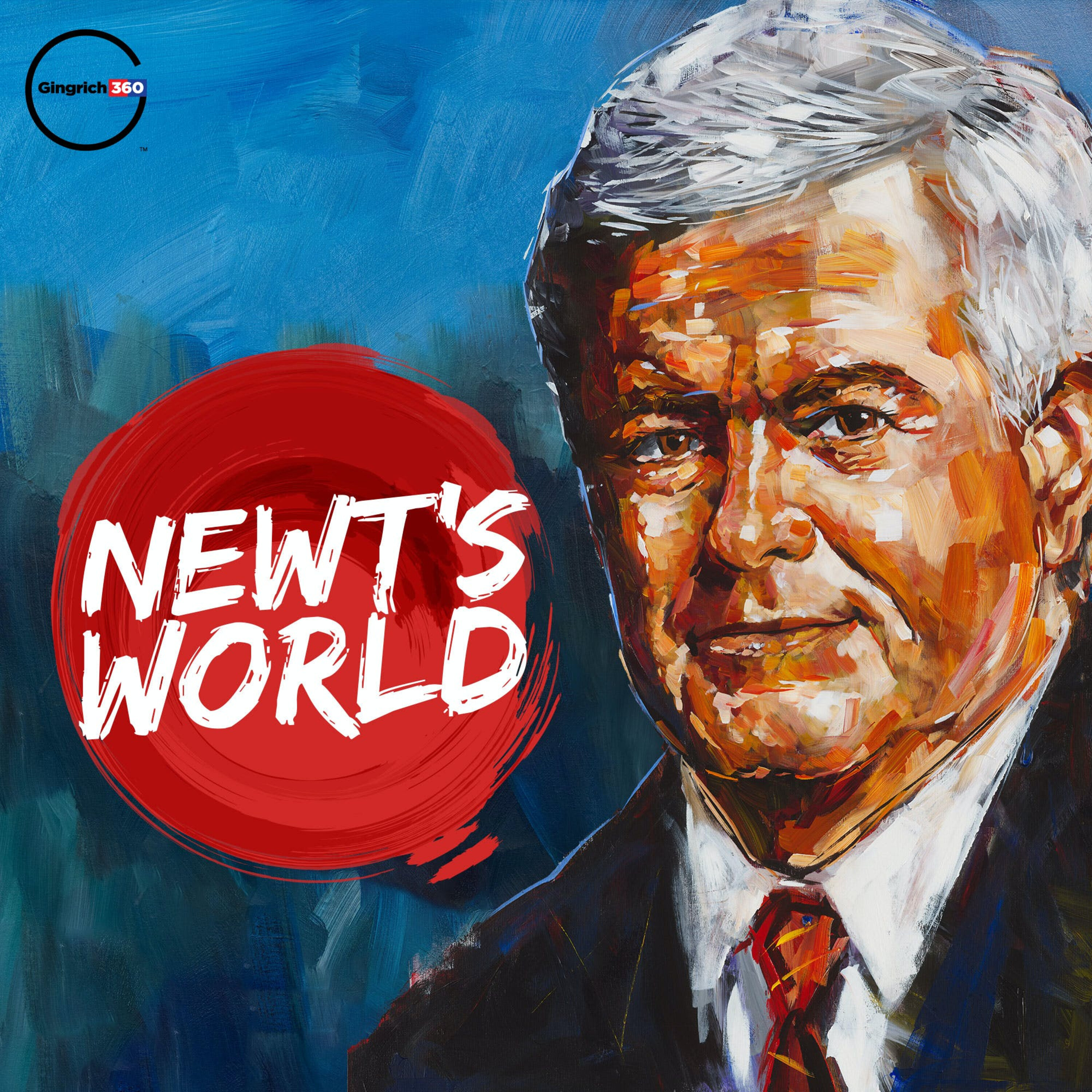
Newt's World
Gingrich 360
Pod Save America
Crooked Media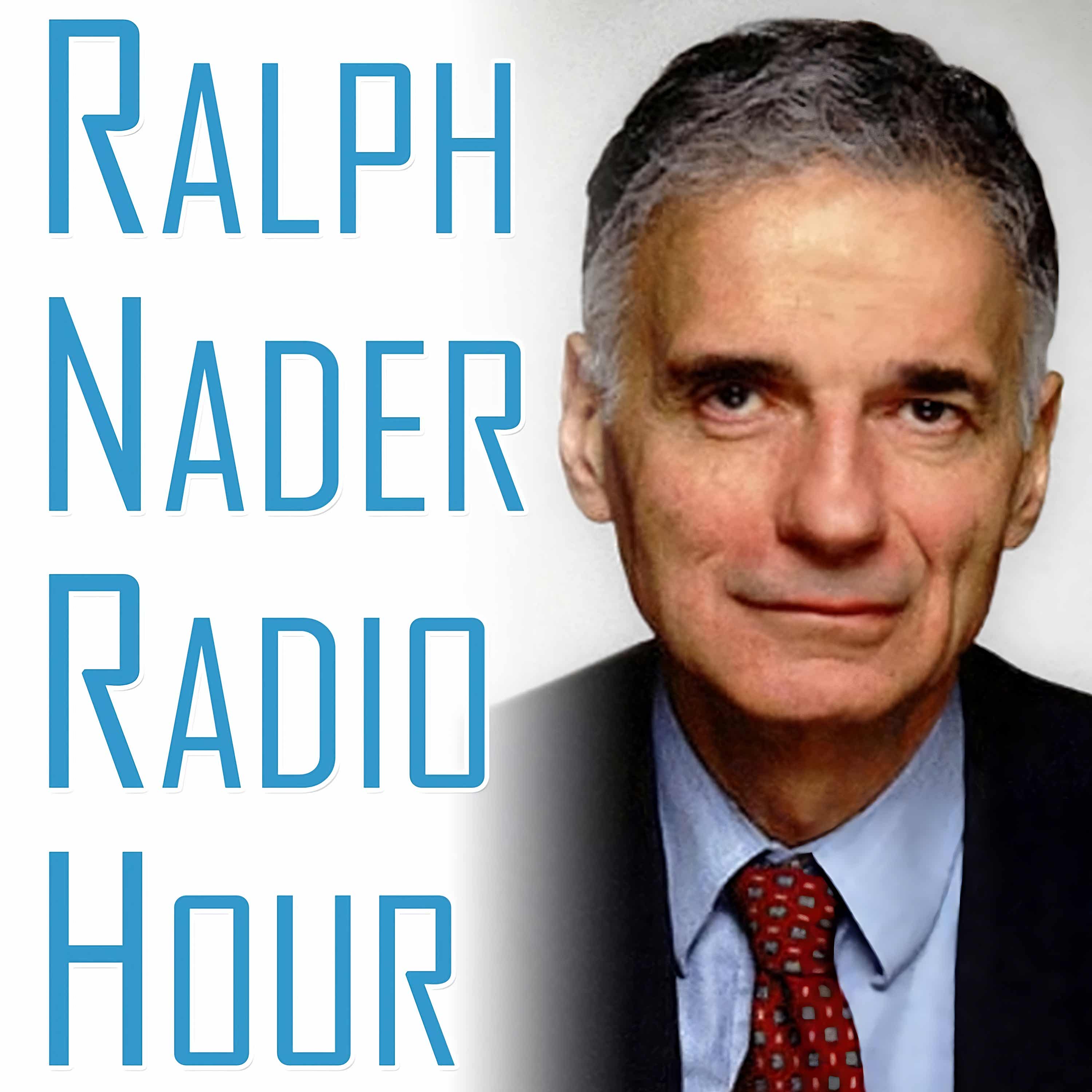
Ralph Nader Radio Hour
Ralph Nader
Bannon`s War Room
WarRoom.org
Bannon’s War Room
dan fleuette
The Young Turks
TYT Network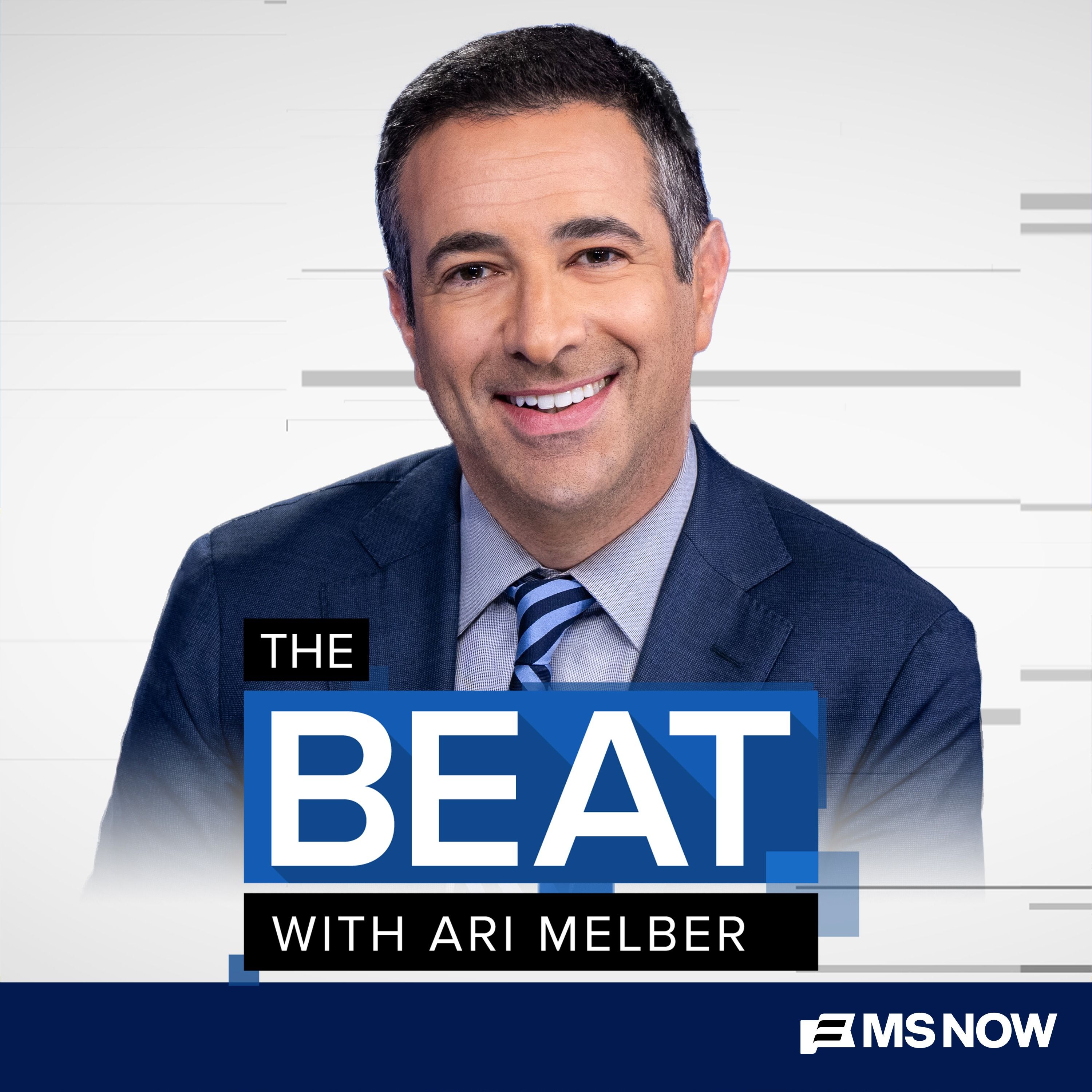
The Beat with Ari Melber
Ari Melber, MS NOW
The Damage Report with John Iadarola
TYT Network
The Majority Report with Sam Seder
Sam Seder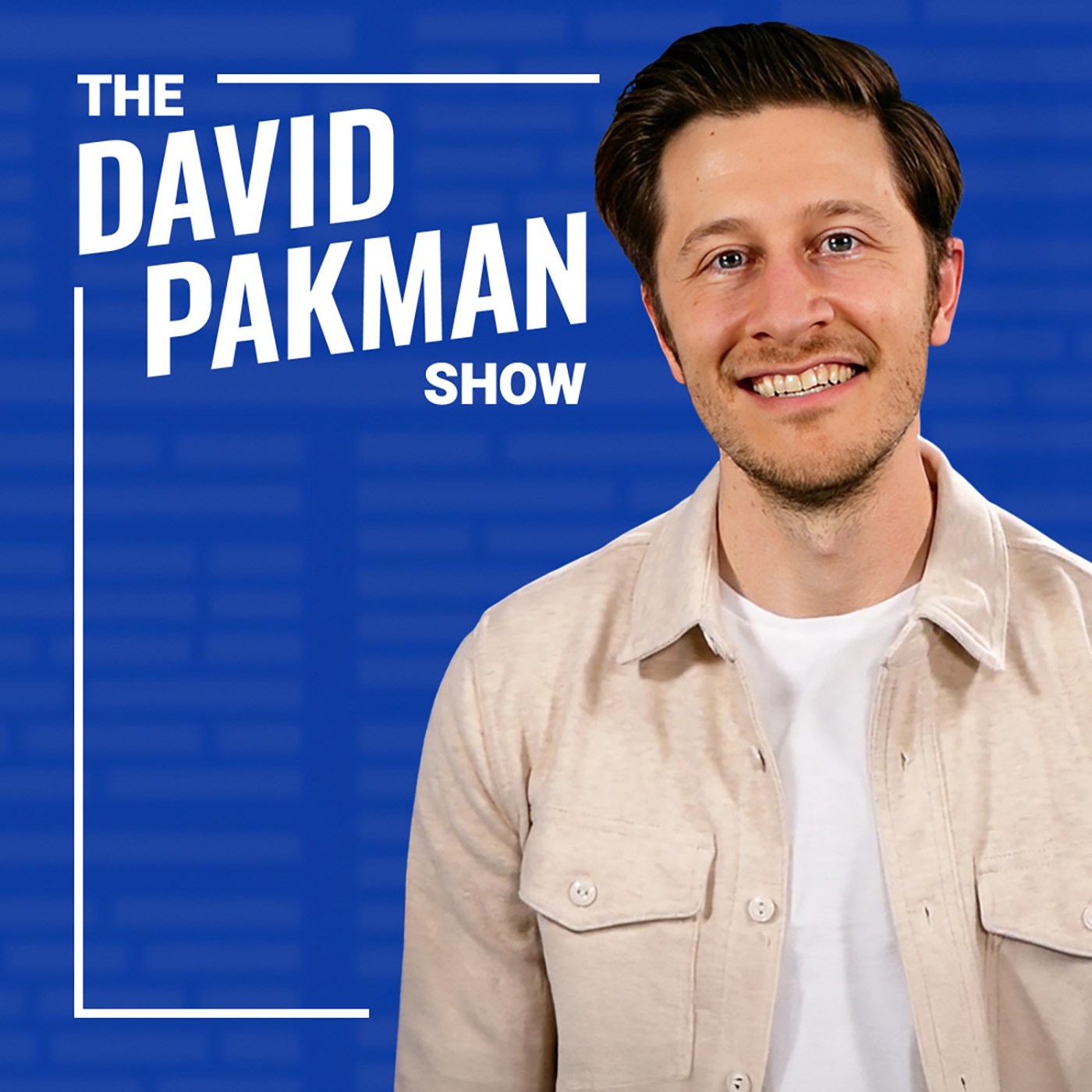
The David Pakman Show
David PakmanGet A Grip with Kendall Reusing
Kendall Reusing
Ultimately with R.C. Sproul
Ligonier Ministries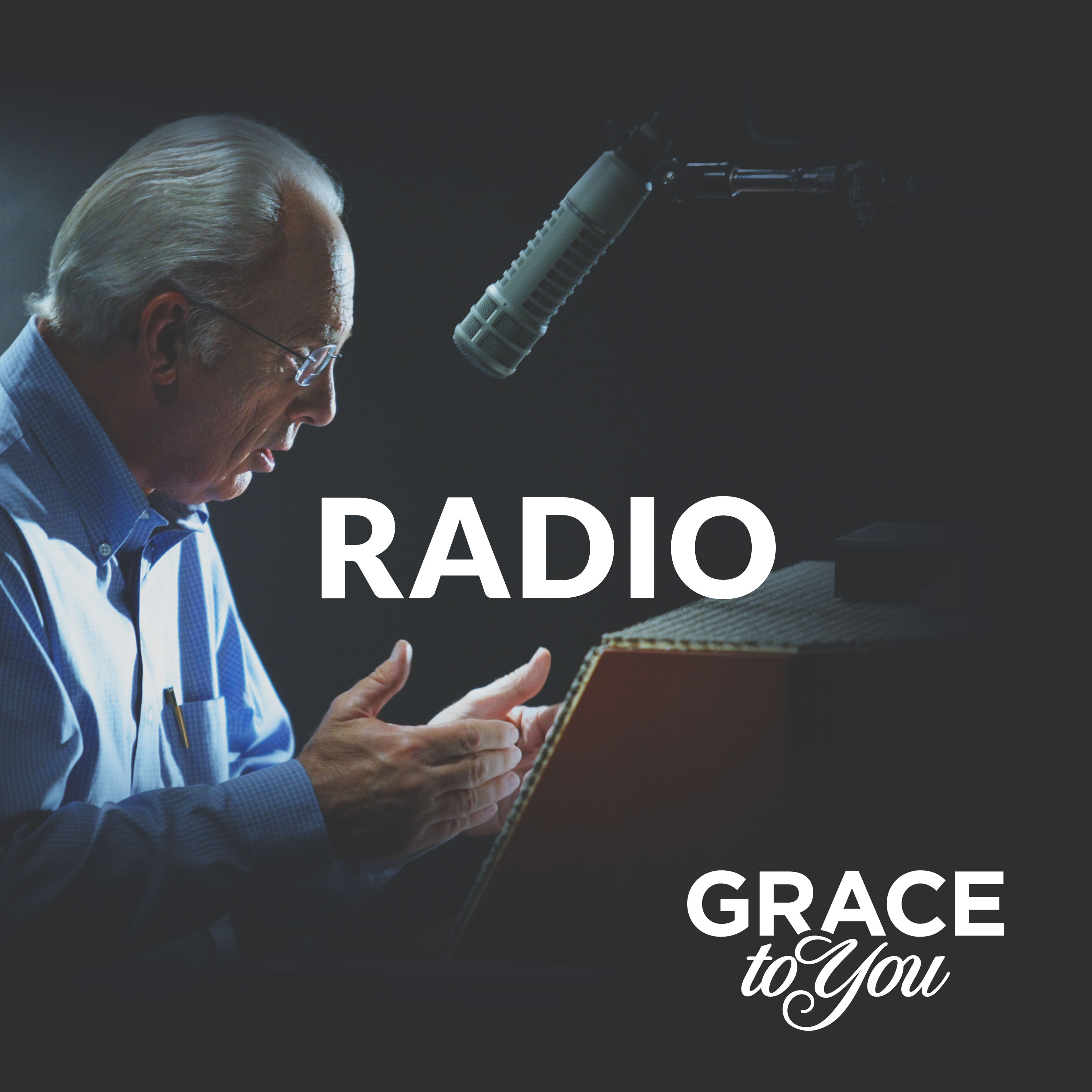
Grace to You: Radio Podcast
John MacArthur
The Briefing with Albert Mohler
R. Albert Mohler, Jr.
StarTalk Radio
Neil deGrasse Tyson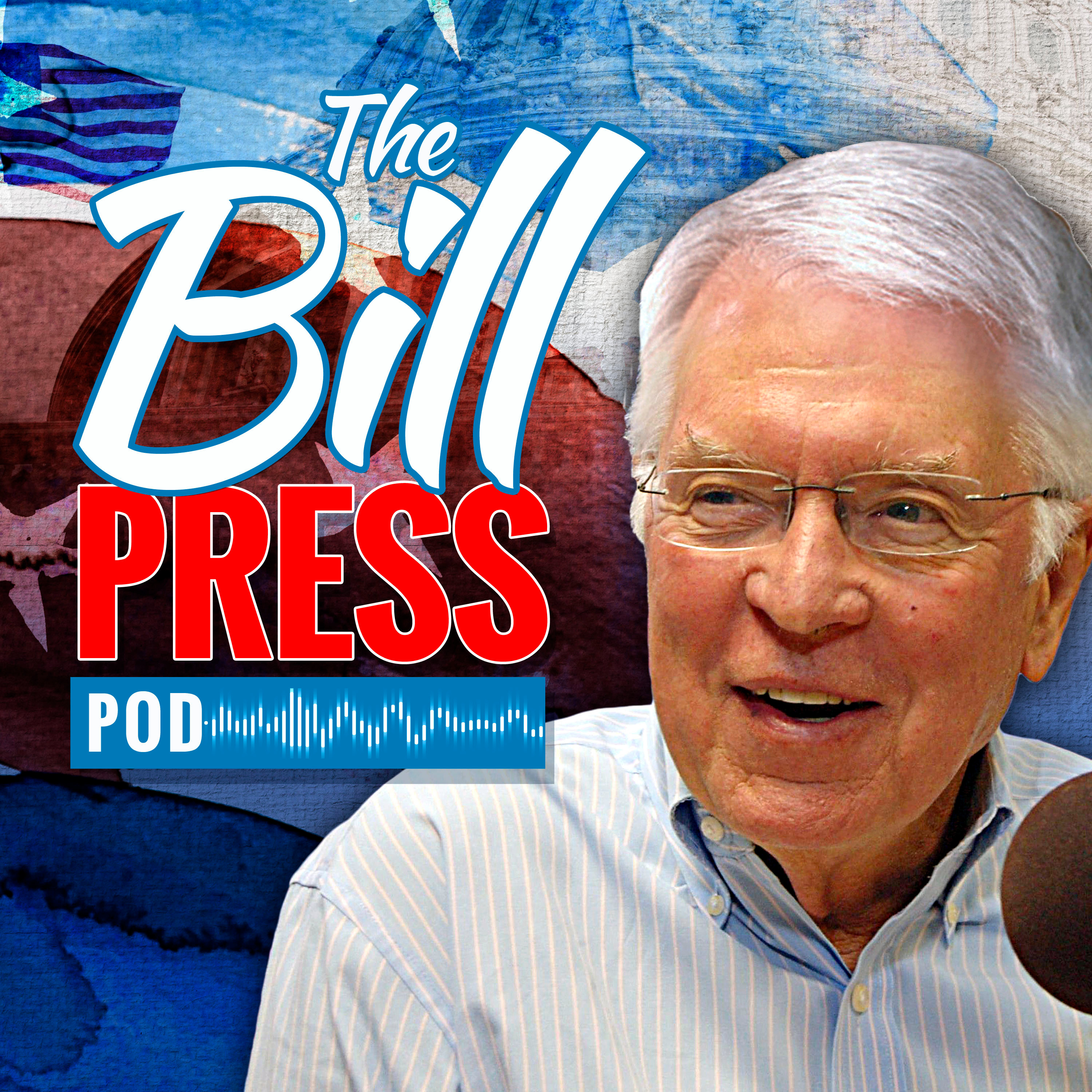
The Bill Press Pod
BP Pods
Ask Pastor John
Desiring God
The Weekly Show with Jon Stewart
Comedy Central
Ask Ligonier
Ligonier Ministries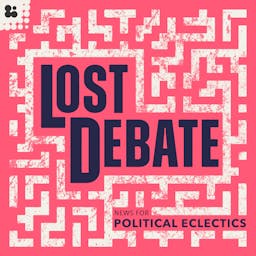
Lost Debate
The Branch
Coffee-Time-Again
Dale Hutchinson
5 Minutes in Church History with Stephen Nichols
Ligonier Ministries
The Ezra Klein Show
New York Times Opinion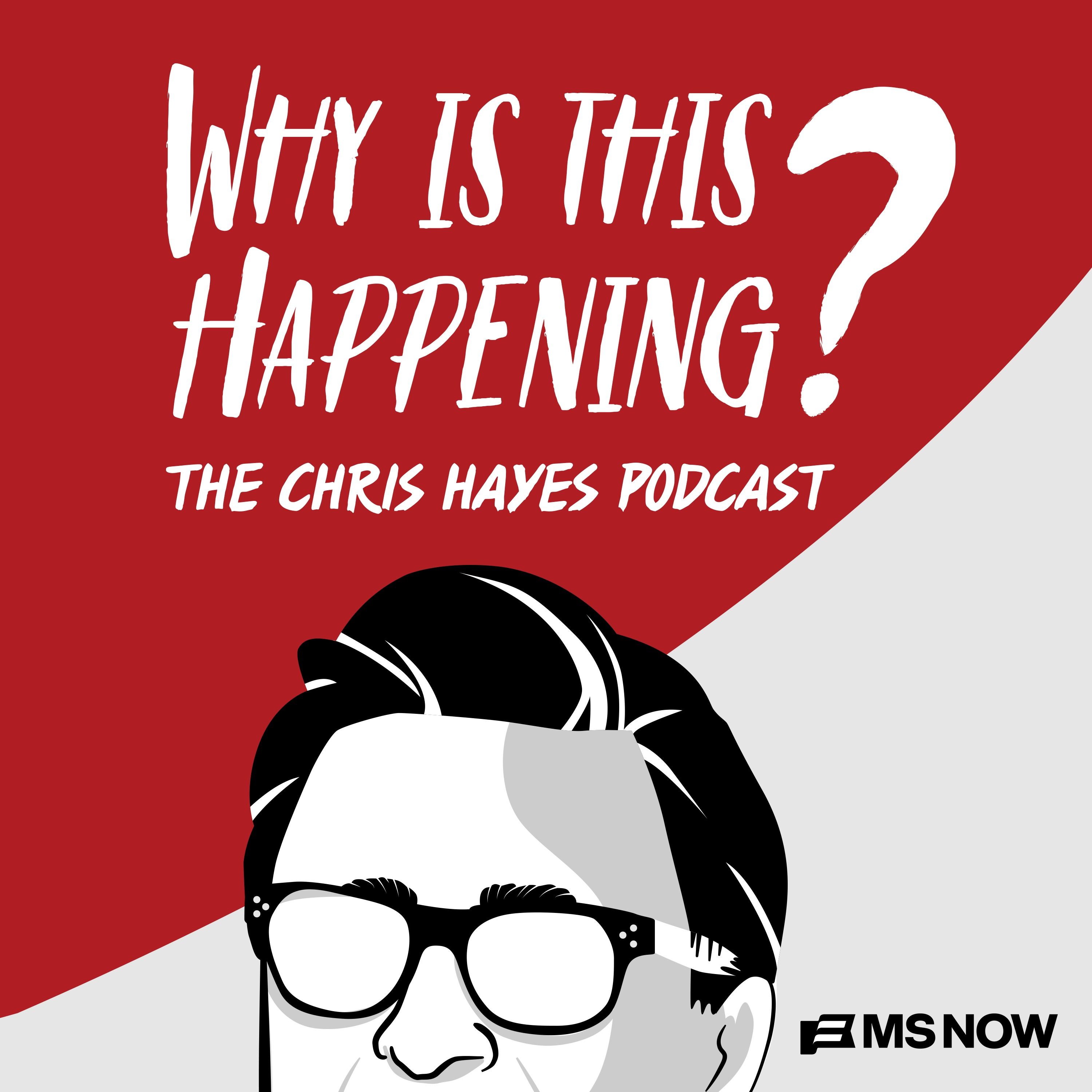
Why Is This Happening? The Chris Hayes Podcast
MS NOW, Chris Hayes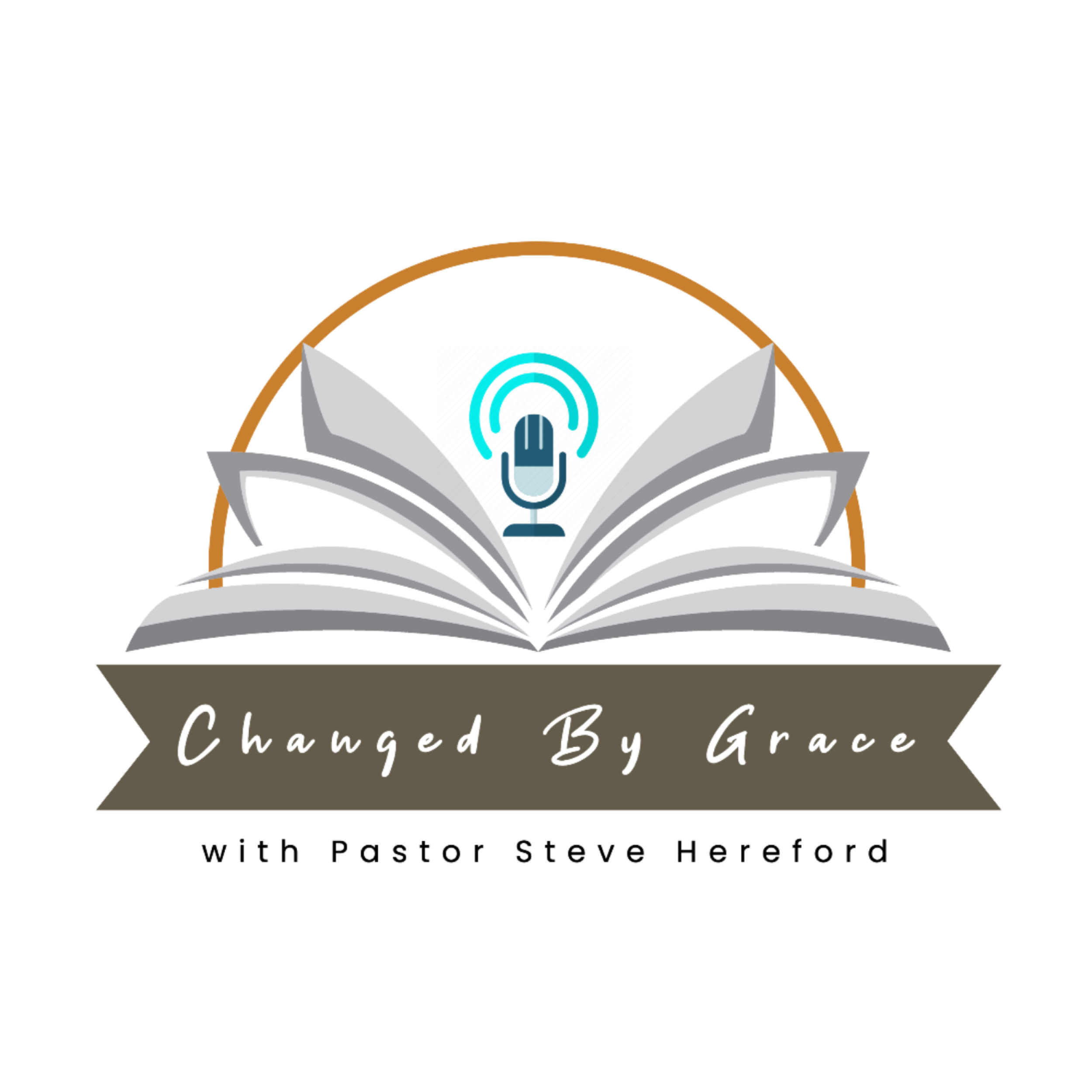
Changed By Grace
PodPoint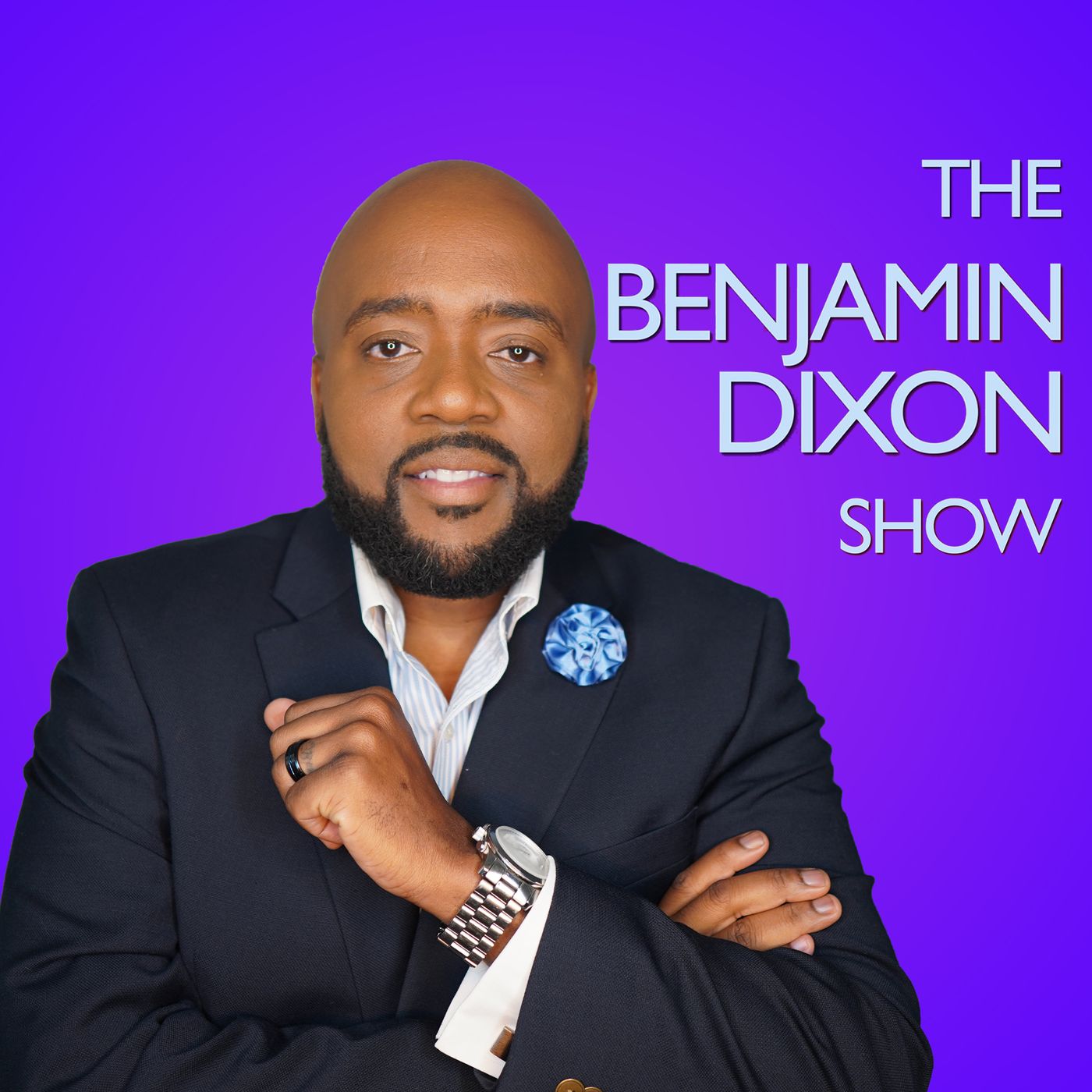
The Benjamin Dixon Show
The Benjamin Dixon Show
Thinking in Public with Albert Mohler
R. Albert Mohler, Jr.
Who Killed JFK?
iHeartPodcastsThe MacArthur Center Podcast
The Master's Seminary
Jean Jacques Machado : No Gi Required
Jay Zeballos
Trauma Bonding
Jamie Kilstein
This Day in History
The HISTORY Channel
The Ben Shapiro Show
The Daily Wire
The Sean Hannity Show
Sean Hannity
Breaking Points with Krystal and Saagar
iHeartPodcasts
The Kyle Kulinski Show
Kyle Kulinski